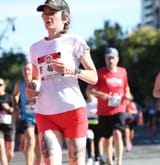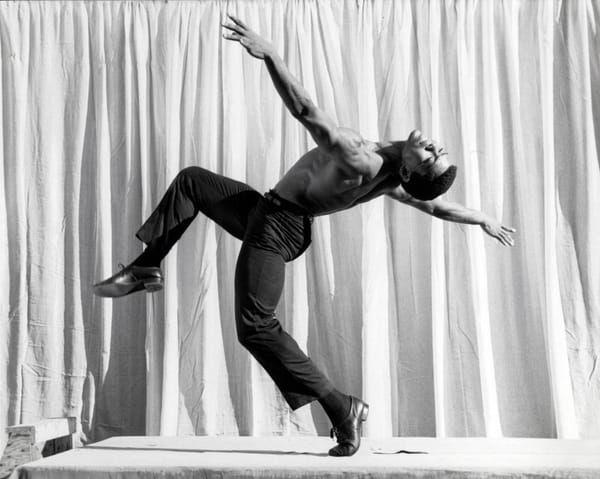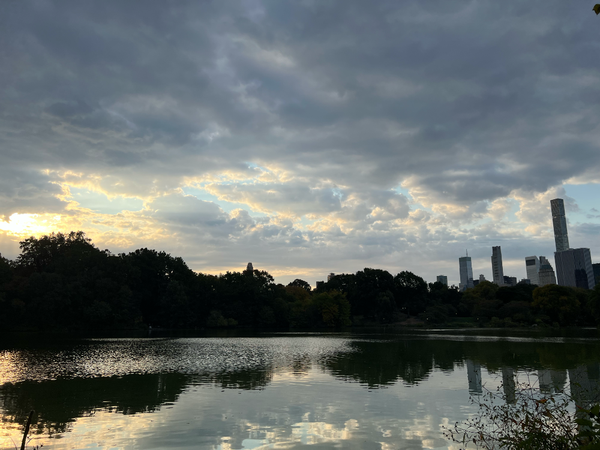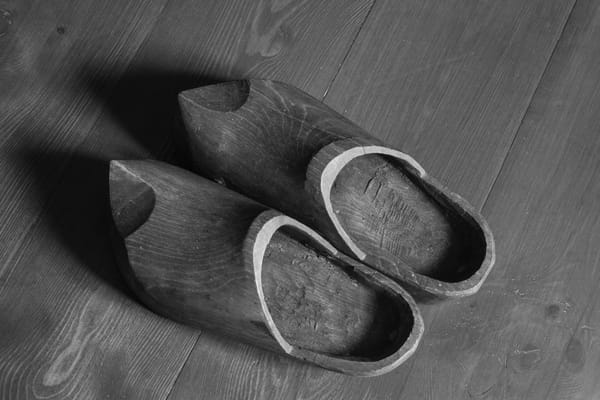Welcome to Second Breakfast
The history of the future of food and fitness technologies. Or, how I get through the mo(u)rning
Welcome to Second Breakfast, a new writing project on food and fitness technologies, on the “optimization” and “data-fication” of the body — or at least of my grieving and aging and traumatized body.
In many ways, Second Breakfast builds on the work I've been doing over the past few years and — as much as I'd like to say otherwise and put Hack Education entirely behind me — the research and writing I've done for over a decade in ed-tech.
There is no escaping behaviorism or Taylorism — for me or for any of us.
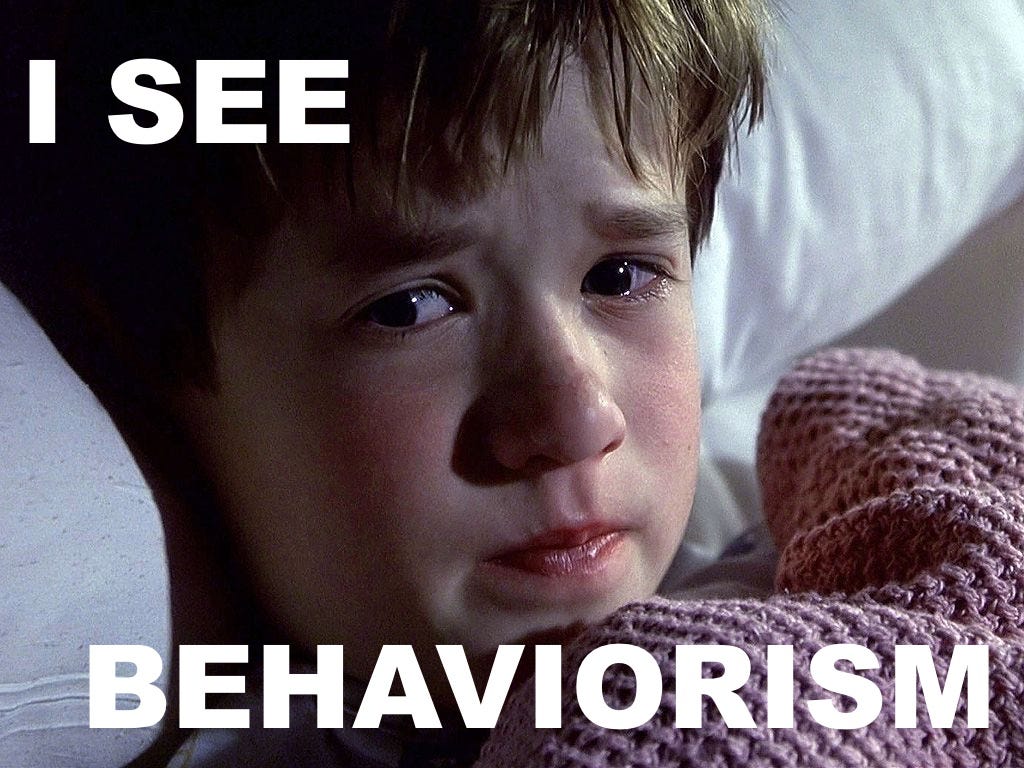
Indeed, one can trace the origins of much of the science and technology of fitness, nutrition, and “wellness” to roughly the same time period as that of ed-tech: the early twentieth century. And just as we spent that century trying to “gadgetize” (B. F. Skinner's word) our way towards sharper, smarter minds — the subject of my book Teaching Machines — we've tried to do the same for stronger, “healthier” bodies. “Conditioning.” “Training.” “Programming.” There's a reason why these areas share the same terminology — let's think more deeply about that, shall we?
The tagline of Hack Education was “the history of the future of education.” Second Breakfast’s echoes this: “the history of the future of food and fitness.” (That is, until I come up with something catchier. And probably a better logo.)
But there’s a second bit too, and it’s more at the crux of the matter for me, here and now and in general and specifically with this project: “How I get through the mo(u)rning.”
Today is my son Isaiah’s birthday. He would have been 30. I'm launching this newsletter today — partly in his honor, partly in my own, in a recognition that I have survived the past three years without him but that I will always always always be his mom. I have made it to today, through the hell of his death, thanks in part to a radical shift in my (professional/personal/life's) focus. It isn't simply that I've quit writing about ed-tech. Or that, long before Elon Musk took over that clown-show, that I quit Twitter. (Both decisions have helped my sanity immensely, nonetheless.) I've changed a lot.
I'll admit: I've tried to distract myself from a broken heart and shattered mind by focusing on my aging body — that is, I've tried be strong physically hoping that I can stay upright mentally too. That's all a bit heavy on the metaphorical there, I realize. Some of it is a, really, theater of health — I perform health, often just for the audience of me, so that I can convince myself it's all good.
Let's be clear at the outset. This newsletter is not about “my health journey” — god I hate that phrase — and I don’t want this writing project to simply be a chronicle of the individual choices and individual circumstances that have brought me to the point where I can now do pretty incredible things with my body — I have run two half marathons! I can squat more than my body weight! I can deadlift almost much as Adele! Things that I’ve never been able to do before. Nor is this newsletter an advice column or a coaching business. There’ll be no might-as-well-be-ChatGPT-generated nonsense on how to lose weight or grow your butt or eat healthier. That said, I am now a certified personal fitness trainer, and I have my Level 1 Precision Nutrition coaching certification too. I'm planning to get my running coach and lifting coach certifications as well — the latter is of particular interest to me, and I will get a bit pedantic about barbell training, I reckon. But, no matter the credentialing, I am very very new at this — the fitness part, that is; I have a whole life’s worth of thoughts and experiences with eating. And I don’t want to pretend to be some sort of expert in a quest to be An Influencer. I am not a fitness blogger; I am not a food blogger; I’m a critic.
It’s so easy to get swept up in some of the stories and technologies promising better health through data collection and analysis. I get it. But politically, I am less interested in the ways in which the technologies of food and fitness focus on individual achievement and performance — “behavior” — than I am on how these technologies shape our collective health and well-being — questions of access, of institutional biases, of algorithmic discrimination, and so on. I have lived in Oakland for the past three years, home of the Black Panthers’ first free breakfast program and a reminder about the ways in which we must extend our practices around food and fitness into our public spaces not just into the private (and white) spaces of gyms and kitchens. I am committed to body justice and social liberation in my work as a critic but also in my work as an athlete and coach.
When it comes to food, I'm a fan. But I am “breakfast food agnostic,” at best. I don’t care what you eat for breakfast. (You really should eat though. Don’t let diet culture or bro science tell you otherwise.) I’m not here to get you “healthy” or to damn you if your dietary habits don’t conform to mine.
Health is weird. For me, I recognize that the past three years, my work to have some semblance of control over my body was a reaction to the lack of control I had over my child’s. I could not save him. I cannot save anyone. Hell, I cannot save myself. All this — all the fitness and fine-tuning of my life — might give me the illusion of control, a control aided by data and gadgetry. But I am not going to eat or run my way to freedom or eternal life (or a “BQ”). I am aging. I am still grieving. But I am also writing again, and that’s something. And I am stronger than I have ever been before, thanks in no small part because I eat a lot of food every morning — not just a second breakfast but sometimes, no lies, a third or a fourth.
So welcome to the newsletter.
Upcoming essay topics will include:
- The history of breakfast, the most moralized meal of the day
- What’s the deal with oatmeal — the history of the Quaker Oats cylindrical box; this weird thing with "overnight" oats; the current paranoia about glucose spiking
- What’s the difference between a cupcake and a muffin?
- The history of sliced bread (and toaster technologies and moral panics about sliced bread and avocado)
- The tyranny of the fitness tracker
- Taylorism in the kitchen (and the origins of “home economics”)
- The business of blood work
- The technology of running shoes
- The history of protein powders and drinkable meals like smoothies. (And Soylent. WTAF)
What you get with your subscription: Second Breakfast will publish three times a week: a weekly breakfast recipe; an essay on technology/history/business — you know, my usual schtick; and a weekly news roundup — what’s happening in the world of food/fitness/wellness-tech. If that seems like a lot of email from me, then perhaps try using the Substack app — then you’ll just get push notifications — if you get push notifications at all, which really, you shouldn't. Turn that shit off.
I want my writing to remain free for anyone who wants to read it; that said, I do need to earn a living, so a paid subscription is available for those who wish to support my work: $6 a month or $60 per year. You can think of the subscription as the cost of buying a book a year from me — it’s a steal if you think of this as a cookbook. It's a steal if you compare it to something published by, say, an academic press. Second Breakfast will remain free for everyone through August before I drop the ol' paywall. When I do, I'll still make at least one newsletter a week free — some weeks it'll be the essay, and some weeks it'll be the recipe, and some weeks it'll be the Friday round-up of news. Everyone'll get a taste.
Bear with me as I get back into the swing of bring a public critic once again. I'll be back tomorrow with my first breakfast recipe for y'all.
Yours in struggle,
~Audrey

